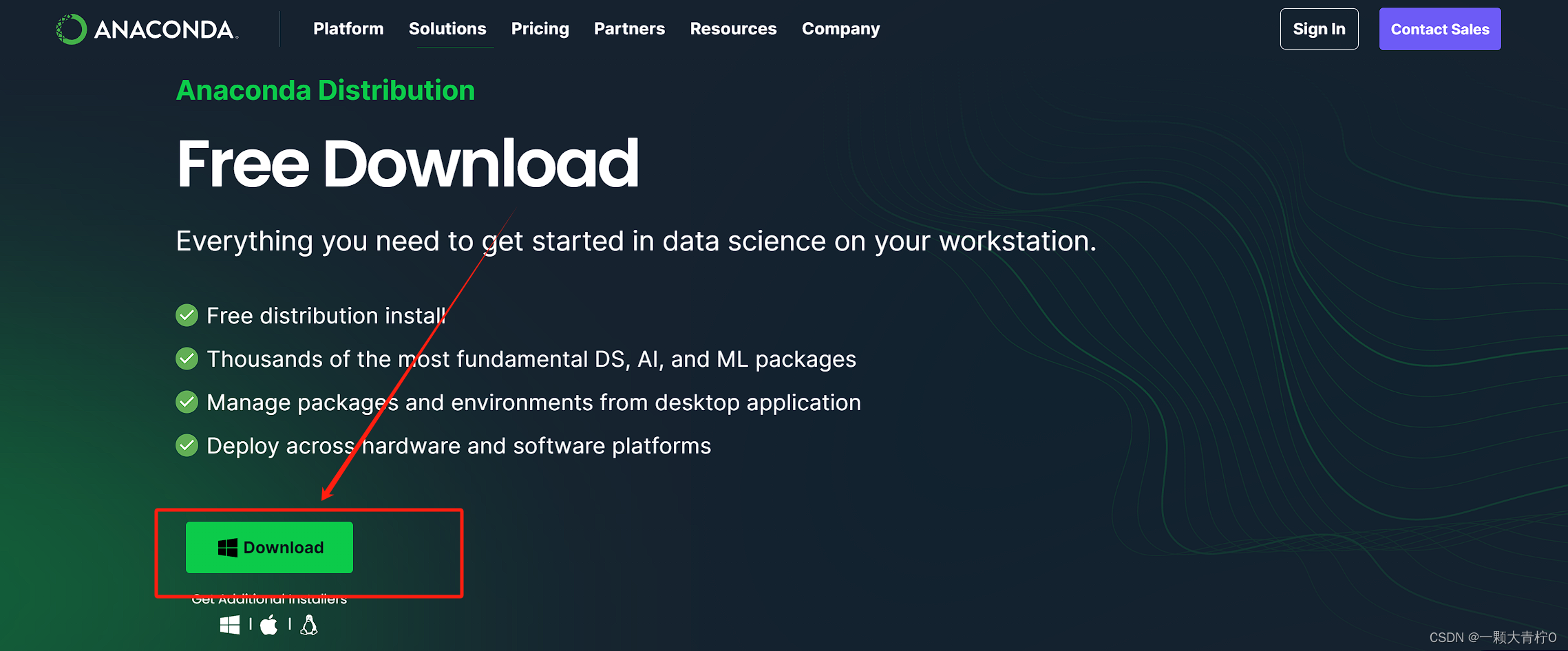
GraphRAG+Ollama实现本地部署(最全,非常详细,保姆教程)
GraphRAG+Ollama本地部署, GraphRAG Ollama为了找到一种省钱的方式并且能够使用GraphRAG便可以调用Ollama本地部署的开源大模型,但需要修改部分源码,我已经实现过了,给大家避坑,快读部署。如果对你有用的,欢迎点赞、收藏!
GraphRAG+Ollama本地部署实现
前文已经介绍过GraphRAG在调用llm api的方式的部署方式,如果有需要的可以去看我写的上一篇文章
微软开源GraphRAG的使用教程(最全,非常详细)
但上述有一个关键的问题——由于GraphRAG过于消耗token,所以money可能接受不了 (ps:听说如果用GPT-4o可能需要46刀)
为了找到一种省钱的方式并且能够使用GraphRAG便可以调用Ollama本地部署的开源大模型,但需要修改部分源码,我已经实现过了,给大家避坑,快速部署。如果对你有用的,欢迎点赞、收藏!
前提
在使用该教程之前确保自己电脑已经安装好Ollama,anaconda等基础配置
1. 创建一个新的虚拟环境(前提已经安装好anaconda),此处推荐python版本3.10
conda create -n graphrag-ollama-local python=3.10
conda activate graphrag-ollama-local
2.安装Ollama
pip install ollama
3.使用Ollama下载使用的开源模型
(1)此处需要选择一个llm和一个embedding模型,这里我选择mistral(4.1GB) 和nomic-embed-text(278MB)
此处也可以自己选择模型,可以自行去Ollama官网查看
ollama pull mistral #llm
ollama pull nomic-embed-text #embedding
(2)检查是否下载成功
ollama list
(3)启动服务
ollama serve
如图已经成功,记得保证http://localhost:11434的ollama默认端口,不要被别的占用
4. 下载源代码
git clone https://github.com/TheAiSingularity/graphrag-local-ollama.git
cd graphrag-local-ollama/
此处已经要用git下载,如果download源代码可能后续会报错
5. 安装依赖包(非常重要!!!)
pip install -e .
此处如果报错,一定要使用git clone源代码,再次运行即可
6. 创建GraphRAG目录,并且创建input/目录用于存放原始文档
mkdir -p ./ragtest/input
7. 将原始文档放入到./ragtest/input目录下(仅支持txt文件,可多个)
cp input/* ./ragtest/input #可根据自己的需求修改
此处给个示例,也可以直接放入./ragtest/input/目录下
8. 初始化项目
python -m graphrag.index --init --root ./ragtest
此处ragtest目录下有output,input,settings.yaml, prompts,.env(默认隐藏)五个目录及文件
9. 移动 settings.yaml 文件,这是用 ollama 本地模型配置的主要预定义配置文件:
mv settings.yaml ./ragtest
10.修改配置文件
此处需要注意,因为我们在第三步选择了mistral(4.1GB) 和nomic-embed-text(278MB),所以需要将setting.yaml中的llm model修改为mistral;embedding model修改为nomic-embed-text。
api_base为http://localhost:11434/v1和http://localhost:11434/api(此为Ollama的默认api调用地址,如果无特殊要求可以不修改)
修改结果如下:
encoding_model: cl100k_base
skip_workflows: []
llm:
api_key: ${GRAPHRAG_API_KEY}
type: openai_chat # or azure_openai_chat
model: mistral
model_supports_json: false # recommended if this is available for your model.
# max_tokens: 4000
# request_timeout: 180.0
api_base: http://localhost:11434/v1
# api_version: 2024-02-15-preview
# organization: <organization_id>
# deployment_name: <azure_model_deployment_name>
# tokens_per_minute: 150_000 # set a leaky bucket throttle
# requests_per_minute: 10_000 # set a leaky bucket throttle
# max_retries: 10
# max_retry_wait: 10.0
# sleep_on_rate_limit_recommendation: true # whether to sleep when azure suggests wait-times
# concurrent_requests: 25 # the number of parallel inflight requests that may be made
parallelization:
stagger: 0.3
# num_threads: 50 # the number of threads to use for parallel processing
async_mode: threaded # or asyncio
embeddings:
## parallelization: override the global parallelization settings for embeddings
async_mode: threaded # or asyncio
llm:
api_key: ${GRAPHRAG_API_KEY}
type: openai_embedding # or azure_openai_embedding
model: nomic-embed-text
api_base: http://localhost:11434/api
# api_version: 2024-02-15-preview
# organization: <organization_id>
# deployment_name: <azure_model_deployment_name>
# tokens_per_minute: 150_000 # set a leaky bucket throttle
# requests_per_minute: 10_000 # set a leaky bucket throttle
# max_retries: 10
# max_retry_wait: 10.0
# sleep_on_rate_limit_recommendation: true # whether to sleep when azure suggests wait-times
# concurrent_requests: 25 # the number of parallel inflight requests that may be made
# batch_size: 16 # the number of documents to send in a single request
# batch_max_tokens: 8191 # the maximum number of tokens to send in a single request
# target: required # or optional
chunks:
size: 200
overlap: 100
group_by_columns: [id] # by default, we don't allow chunks to cross documents
input:
type: file # or blob
file_type: text # or csv
base_dir: "input"
file_encoding: utf-8
file_pattern: ".*\\.txt$"
cache:
type: file # or blob
base_dir: "cache"
# connection_string: <azure_blob_storage_connection_string>
# container_name: <azure_blob_storage_container_name>
storage:
type: file # or blob
base_dir: "output/${timestamp}/artifacts"
# connection_string: <azure_blob_storage_connection_string>
# container_name: <azure_blob_storage_container_name>
reporting:
type: file # or console, blob
base_dir: "output/${timestamp}/reports"
# connection_string: <azure_blob_storage_connection_string>
# container_name: <azure_blob_storage_container_name>
entity_extraction:
## llm: override the global llm settings for this task
## parallelization: override the global parallelization settings for this task
## async_mode: override the global async_mode settings for this task
prompt: "prompts/entity_extraction.txt"
entity_types: [organization,person,geo,event]
max_gleanings: 0
summarize_descriptions:
## llm: override the global llm settings for this task
## parallelization: override the global parallelization settings for this task
## async_mode: override the global async_mode settings for this task
prompt: "prompts/summarize_descriptions.txt"
max_length: 500
claim_extraction:
## llm: override the global llm settings for this task
## parallelization: override the global parallelization settings for this task
## async_mode: override the global async_mode settings for this task
# enabled: true
prompt: "prompts/claim_extraction.txt"
description: "Any claims or facts that could be relevant to information discovery."
max_gleanings: 0
community_report:
## llm: override the global llm settings for this task
## parallelization: override the global parallelization settings for this task
## async_mode: override the global async_mode settings for this task
prompt: "prompts/community_report.txt"
max_length: 2000
max_input_length: 8000
cluster_graph:
max_cluster_size: 10
embed_graph:
enabled: false # if true, will generate node2vec embeddings for nodes
# num_walks: 10
# walk_length: 40
# window_size: 2
# iterations: 3
# random_seed: 597832
umap:
enabled: false # if true, will generate UMAP embeddings for nodes
snapshots:
graphml: yes
raw_entities: yes
top_level_nodes: yes
local_search:
# text_unit_prop: 0.5
# community_prop: 0.1
# conversation_history_max_turns: 5
# top_k_mapped_entities: 10
# top_k_relationships: 10
# max_tokens: 12000
global_search:
# max_tokens: 12000
# data_max_tokens: 12000
# map_max_tokens: 1000
# reduce_max_tokens: 2000
# concurrency: 32
11. 进行索引,构建图
python -m graphrag.index --root ./ragtest
12.进行全局查询
python -m graphrag.query --root ./ragtest --method global "What is meaning?"
13. 进行局部查询时,修改源码(可选,如果需要使用局部查询)
此处需要1处源码修改:
(1)首先找到源码所在位置
graphrag-local-ollama/graphrag/query/llm/oai/embedding.py
(2)安装langchain_community
pip install langchain_community
(3)将该文件替换为下述文件
# Copyright (c) 2024 Microsoft Corporation.
# Licensed under the MIT License
"""OpenAI Embedding model implementation."""
import asyncio
from collections.abc import Callable
from typing import Any
import numpy as np
import tiktoken
from tenacity import (
AsyncRetrying,
RetryError,
Retrying,
retry_if_exception_type,
stop_after_attempt,
wait_exponential_jitter,
)
from graphrag.query.llm.base import BaseTextEmbedding
from graphrag.query.llm.oai.base import OpenAILLMImpl
from graphrag.query.llm.oai.typing import (
OPENAI_RETRY_ERROR_TYPES,
OpenaiApiType,
)
from graphrag.query.llm.text_utils import chunk_text
from graphrag.query.progress import StatusReporter
from langchain_community.embeddings import OllamaEmbeddings
class OpenAIEmbedding(BaseTextEmbedding, OpenAILLMImpl):
"""Wrapper for OpenAI Embedding models."""
def __init__(
self,
api_key: str | None = None,
azure_ad_token_provider: Callable | None = None,
model: str = "text-embedding-3-small",
deployment_name: str | None = None,
api_base: str | None = None,
api_version: str | None = None,
api_type: OpenaiApiType = OpenaiApiType.OpenAI,
organization: str | None = None,
encoding_name: str = "cl100k_base",
max_tokens: int = 8191,
max_retries: int = 10,
request_timeout: float = 180.0,
retry_error_types: tuple[type[BaseException]] = OPENAI_RETRY_ERROR_TYPES, # type: ignore
reporter: StatusReporter | None = None,
):
OpenAILLMImpl.__init__(
self=self,
api_key=api_key,
azure_ad_token_provider=azure_ad_token_provider,
deployment_name=deployment_name,
api_base=api_base,
api_version=api_version,
api_type=api_type, # type: ignore
organization=organization,
max_retries=max_retries,
request_timeout=request_timeout,
reporter=reporter,
)
self.model = model
self.encoding_name = encoding_name
self.max_tokens = max_tokens
self.token_encoder = tiktoken.get_encoding(self.encoding_name)
self.retry_error_types = retry_error_types
def embed(self, text: str, **kwargs: Any) -> list[float]:
"""
Embed text using OpenAI Embedding's sync function.
For text longer than max_tokens, chunk texts into max_tokens, embed each chunk, then combine using weighted average.
Please refer to: https://github.com/openai/openai-cookbook/blob/main/examples/Embedding_long_inputs.ipynb
"""
token_chunks = chunk_text(
text=text, token_encoder=self.token_encoder, max_tokens=self.max_tokens
)
chunk_embeddings = []
chunk_lens = []
for chunk in token_chunks:
try:
embedding, chunk_len = self._embed_with_retry(chunk, **kwargs)
chunk_embeddings.append(embedding)
chunk_lens.append(chunk_len)
except Exception as e: # noqa BLE001
self._reporter.error(
message="Error embedding chunk",
details={self.__class__.__name__: str(e)},
)
continue
chunk_embeddings = np.average(chunk_embeddings, axis=0, weights=chunk_lens)
chunk_embeddings = chunk_embeddings / np.linalg.norm(chunk_embeddings)
return chunk_embeddings.tolist()
async def aembed(self, text: str, **kwargs: Any) -> list[float]:
"""
Embed text using OpenAI Embedding's async function.
For text longer than max_tokens, chunk texts into max_tokens, embed each chunk, then combine using weighted average.
"""
token_chunks = chunk_text(
text=text, token_encoder=self.token_encoder, max_tokens=self.max_tokens
)
chunk_embeddings = []
chunk_lens = []
embedding_results = await asyncio.gather(*[
self._aembed_with_retry(chunk, **kwargs) for chunk in token_chunks
])
embedding_results = [result for result in embedding_results if result[0]]
chunk_embeddings = [result[0] for result in embedding_results]
chunk_lens = [result[1] for result in embedding_results]
chunk_embeddings = np.average(chunk_embeddings, axis=0, weights=chunk_lens) # type: ignore
chunk_embeddings = chunk_embeddings / np.linalg.norm(chunk_embeddings)
return chunk_embeddings.tolist()
def _embed_with_retry(
self, text: str | tuple, **kwargs: Any
) -> tuple[list[float], int]:
try:
retryer = Retrying(
stop=stop_after_attempt(self.max_retries),
wait=wait_exponential_jitter(max=10),
reraise=True,
retry=retry_if_exception_type(self.retry_error_types),
)
for attempt in retryer:
with attempt:
embedding = (
OllamaEmbeddings(
model=self.model,
).embed_query(text)
or []
)
return (embedding, len(text))
except RetryError as e:
self._reporter.error(
message="Error at embed_with_retry()",
details={self.__class__.__name__: str(e)},
)
return ([], 0)
else:
# TODO: why not just throw in this case?
return ([], 0)
async def _aembed_with_retry(
self, text: str | tuple, **kwargs: Any
) -> tuple[list[float], int]:
try:
retryer = AsyncRetrying(
stop=stop_after_attempt(self.max_retries),
wait=wait_exponential_jitter(max=10),
reraise=True,
retry=retry_if_exception_type(self.retry_error_types),
)
async for attempt in retryer:
with attempt:
embedding = (
await OllamaEmbeddings(
model=self.model,
).embed_query(text) or [] )
return (embedding, len(text))
except RetryError as e:
self._reporter.error(
message="Error at embed_with_retry()",
details={self.__class__.__name__: str(e)},
)
return ([], 0)
else:
# TODO: why not just throw in this case?
return ([], 0)
到这里完全把坑跳过去了,就可以正常使用了,大功告成。
(3)进行局部查询(local method)
python -m graphrag.query --root ./ragtest --method local "What is meaning?"
附加内容
如果用的embedding模型不是示例的nomic-embed-text,需要再修改一处源码,找到这个目录下的文件
graphrag-local-ollama/graphrag/llm/openai/create_openai_client.py,修改这个model为自己调用的模型

报错总结
根据大家在评论区的报错,给大家总结一下
1.在查询时报如下错误:
ZeroDivisionError: Weights sum to zero, can't be normalized
或者
json.decoder.JSONDecodeError: Expecting value: line 1 column 1 (char 0)
解决方法:
找到graphrag-local-ollama/graphrag/query/structured_search/global_search/search.py
把其中所有的search_messages(一共两处)修改为如下格式,注释掉的为原始内容:
#search_messages = [
# {"role": "system", "content": search_prompt},
# {"role": "user", "content": query},
#]
search_messages = [ {"role": "user", "content": search_prompt + "\n\n### USER QUESTION ### \n\n" + query} ]
2.prompt token长度超出模型的上下文窗口
报错信息:
[GIN] 2024/11/18 - 14:04:10 | 500 | 3m0s | 127.0.0.1 | POST "/v1/chat/completions"
time=2024-11-18T14:04:10.031+08:00 level=WARN source=runner.go:126 msg="truncating input prompt" limit=2048 prompt=2564 numKeep=5
在settting.yaml中把chunk_size调小一点。
总结
通过上述方式,我们已经可以通过ollama调用本地部署的开源大模型进行GraphRAG的测试了,但是我两种方式用下来,开源模型由于参数量比较小,整体的效果不是太好,所以此处如果GPU的显存足够的话,可以选用参数量更大的qwen2或其他效果更好的大模型进行测试。如果使用过程中还有任何问题,欢迎在讨论区讨论。
更多推荐
 已为社区贡献2条内容
已为社区贡献2条内容









所有评论(0)